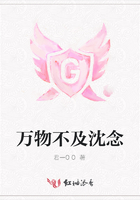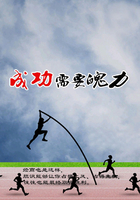Kutuzov, whom he had overtaken in Poland, had received him very cordially, had promised not to forget him, had marked him out among the other adjutants, had taken him with him to Vienna and given him the more serious commissions. From Vienna, Kutuzov had written to his old comrade, Prince Andrey’s father.
“Your son,” he wrote, “gives promise of becoming an officer, who will make his name by his industry, firmness, and conscientiousness. I consider myself lucky to have such an assistant at hand.”
On Kutuzov’s staff, among his fellow-officers, and in the army generally, Prince Andrey had, as he had had in Petersburg society, two quite opposite reputations. Some, the minority, regarded Prince Andrey as a being different from themselves and from all other men, expected great things of him, listened to him, were enthusiastic in his praise, and imitated him, and with such people Prince Andrey was frank and agreeable. Others, the majority, did not like Prince Andrey, and regarded him as a sulky, cold, and disagreeable person. But with the latter class, too, Prince Andrey knew how to behave so that he was respected and even feared by them.
Coming out of Kutuzov’s room into the reception-room, Prince Andrey went in with his papers to his comrade, the adjutant on duty, Kozlovsky, who was sitting in the window with a book.
“What is it, prince?” queried Kozlovsky.
“I am told to make a note of the reason why we are not moving forward.”
“And why aren’t we?”
Prince Andrey shrugged his shoulders
“No news from Mack?” asked Kozlovsky.
“No.”
“If it were true that he had been beaten, news would have come.”
“Most likely,” said Prince Andrey, and he moved towards the door to go out. But he was met on the way by a tall man who at that instant walked into the reception-room, slamming the door. The stranger, who had obviously just arrived, was an Austrian general in a long coat, with a black kerchief tied round his head, and the order of Maria Theresa on his neck. Prince Andrey stopped short.
“Commander-in-chief Kutuzov?” the general asked quickly, speaking with a harsh German accent. He looked about him on both sides, and without a pause walked to the door of the private room.
“The commander-in-chief is engaged,” said Kozlovsky, hurriedly going up to the unknown general and barring his way to the door. “Whom am I to announce?”
The unknown general looked disdainfully down at the short figure of Kozlovsky, as though surprised that they could be ignorant of his identity.
“The commander-in-chief is engaged,” Kozlovsky repeated tranquilly.
The general’s face contracted, his lips twitched and quivered. He took out a notebook, hurriedly scribbled something in pencil, tore out the leaf, handed it to Kozlovsky, and with rapid steps walked to the window, dropped on to a chair and looked round at the persons in the room, as though asking what they were looking at him for. Then the general lifted his head, craned his neck forward as though intending to say something, but immediately, as though carelessly beginning to hum to himself, uttered a strange sound which broke off at once. The door of the private room opened, and Kutuzov appeared in the doorway.
The general with the bandaged head, bent forward as though fleeing from danger, strode towards Kutuzov, his thin legs moving swiftly.
“You see the unfortunate Mack,” he articulated in French in a breaking voice.
The face of Kutuzov, as he stood in the doorway, remained for several instants perfectly unmoved. Then a frown seemed to run over his face, like a wave, leaving his forehead smooth again; he bowed his head respectfully, closed his eyes, ushered Mack in before him without a word, and closed the door behind him.
The report, which had been in circulation before this, of the defeat of the Austrians and the surrender of the whole army at Ulm, turned out to be the truth. Within half an hour adjutants had been despatched in various directions with orders. It was evident that the Russian troops which had hitherto been inactive, were destined soon to meet the enemy.














